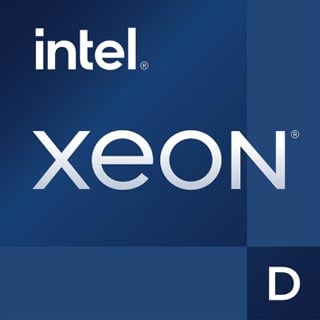
Compare Intel Xeon D-1718T VS AMD Ryzen 5 2600. Which processor delivers superior performance?
In this detailed comparison, we evaluate the specifications and benchmarks of both processors to determine the best choice for your needs. We analyze their core counts, maximum frequencies, and power consumption.
Intel Xeon D-1718T boasts a maximum frequency of 2.60 GHz GHz. 4 / 8 cores that enhance multitasking capabilities.With a power consumption of 46 W W, it ensures efficient performance.Released in Q1/2022, it incorporates the latest technology for optimal efficiency.
AMD Ryzen 5 2600 features a maximum frequency of 3.40 GHz GHz. 6 cores designed for high-performance tasks.Its power consumption is 65 W W, providing a balance of power and efficiency.Launched in Q2/2018, it is built to handle demanding applications.
 Reasons to consider
Reasons to consider Performance per watt
times less performance per watt
Common positions Intel Xeon D-1718T CPU in popular benchmarks, for comparison with other models.
No data Reasons to consider
Reasons to consider Place in the overall ranking
(based on several benchmarks)
Higher clock speed
Around 24% better clock speed
More number of cores
About 1.5 times more cores
Higher turbo clock speed
Around 10 % better overclocked clock speed
Common positions AMD Ryzen 5 2600 CPU in popular benchmarks, for comparison with other models.
 Intel Xeon D-1718T
Intel Xeon D-1718T

Comprehensive background on the processors being compared, detailing their series, generation, and targeted market segment.
Essential parameters including the number of cores, threads, base and turbo frequencies, and cache size. These metrics provide insight into the processor’s speed—higher values generally indicate better performance.
The integrated graphics (iGPU) do not influence the CPU performance significantly; they serve as a substitute for a dedicated graphics card in the absence of one or are utilized in mobile devices.
This section details the built-in codecs used for encoding and decoding media content, which significantly enhance processing speed and efficiency.
Overview of the types and quantities of RAM supported by AMD Ryzen 5 2600 and Intel Xeon D-1718T. The supported memory frequencies may vary depending on the motherboard configuration.
Analyze the TDP (Thermal Design Power) requirements of Intel Xeon D-1718T and AMD Ryzen 5 2600 to make an informed decision on the appropriate cooling system. Remember that TDP refers to thermal watts, not electrical watts.
Information on architecture, interfaces, and additional instructions supported by Intel Xeon D-1718T and AMD Ryzen 5 2600, including virtual machine technologies and fabrication processes.
By analyzing the results from various benchmarks, you can gain a clearer understanding of the performance differences between Intel Xeon D-1718T and AMD Ryzen 5 2600.
Compare the synthetic benchmark scores and make an informed decision on the best processor for your needs!